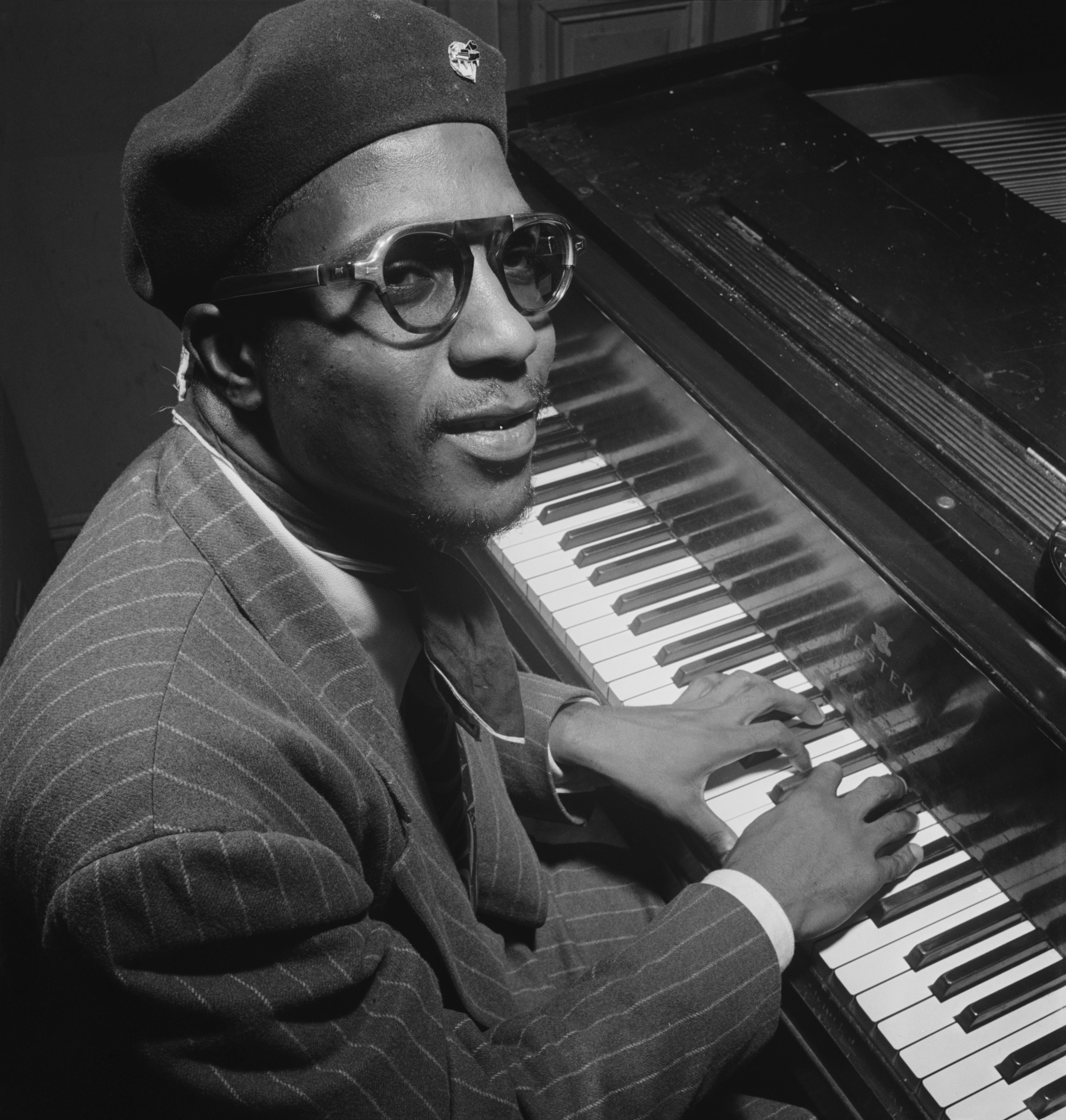“Tentare di spiegare la musica è come tentare di danzare l'architettura.”
Trying to explain music is like trying to dance architecture.
Senza fonte, Attribuite
Thelonious Sphere Monk è stato un pianista e compositore statunitense, conosciuto per il suo singolare stile d'improvvisazione e per il consistente contributo al repertorio del jazz.
Uomo dominato dalla stranezza comportamentale, da un mutismo eccessivo e da un forte egocentrismo che inevitabilmente influenzarono la sua musica spesso screditata da critiche superficiali. Stile che è però stato, in tempi recenti, completamente decifrato: sotto quella coltre di "stranezza" si è conclamato un nuovo modo di fare jazz a cui si ispirarono le generazioni successive.
Wikipedia

“Tentare di spiegare la musica è come tentare di danzare l'architettura.”
Trying to explain music is like trying to dance architecture.
Senza fonte, Attribuite
“Talvolta va a tuo vantaggio che la gente pensi che tu sia pazzo.”
Sometimes it's to your advantage for people to think you're crazy.
Senza fonte
“È sempre notte, o altrimenti non avremmo bisogno della luce.”
It's always night, or we wouldn't need light.
Senza fonte
“Ho fatto gli errori sbagliati.”
dopo un'improvvisazione a lui insoddisfacente
I made the wrong mistakes.
Senza fonte, Attribuite
gioco di parole sul duplice significato del verbo inglese dig
You've got to dig to dig it, you dig?
Senza fonte, Attribuite
“È stato un piacere parlare con te.”
dopo un viaggio di 6 ore in macchina con Bud Powell in cui non si erano rivolti parola
“All musicians are subconsciously mathematicians.”
Interview in Down Beat magazine (28 October 1971)
Thelonious Monk Documentary DVD.
When questioned as to the future of jazz, as quoted in Jet magazine (31 March 1960), p. 30
“Which is the way to the toilet?”
Circa 1966, reviewing "Easy Listening Blues" https://www.youtube.com/watch?v=lWKavK4naYM from Oscar Peterson's With Respect to Nat, for DownBeat's "Blindfold Test"; reproduced in The Encyclopedia of Jazz in the Sixties (1966) by Leonard Feather, p. 30
“The piano ain't got no wrong notes.”
Attributed by WKCR jazz host Phil Schaap, after a guest commented on how Monk played a lot of "wrong" notes. (March 1976)
Origine: Evan Spring, Phil Schaap Interview https://www.cc-seas.columbia.edu/wkcr/content/phil-schaap-interview, WKCR, 5 October, 1992